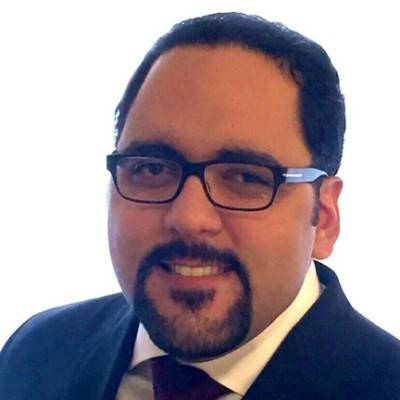Welcome back to this week's episode of the PNC podcast. I really appreciate you for being here. I had a lot of really positive feedback about last week's interview. It was quite popular. If you didn't listen to my conversation with Katrina Ubell, I strongly recommend that you check it out now. She provided some really interesting ideas based on her training for and experience as a life coach for physicians. You can find it on iTunes or go to vitalpe.net/episode035.
Today, I'd like to explain what inspires me to bring you new information and new guests, and to keep producing this podcast and other new content. It's going to boil down to two big things that really get me, and keep me, fired up.
Indoctrination
When I started as Chief Medical Officer, or really as VPMA initially, but as I became a hospital executive about 17-18 years ago, one of the things I wanted to work on was becoming a really integral part of the senior executive team.
Photo by rawpixel on Unsplash
So that meant I really wanted to fit in. So I wanted to please the CEO and the other executive team members. But in the process of doing that, I did sort of minimize some of my concerns about the way that the physicians that were my colleagues were working in the organization, particularly the employed physicians.
So, for the first several years, I did a lot of listening, I didn't jump in that often. But over time, I became more and more comfortable. But I also became sort of, I guess you'd call it, indoctrinated into the way things were done as part of that executive team. Now, fast-forward about 15 years, and I began to feel that there were a couple of things that were going on that didn't sit right with me.
Community Needs vs. Bottom Line
One was that it didn't seem that we were really trying to necessarily always focus our efforts on trying to meet the needs of the community as much as we could. It seemed like we always were doing projects that were more focused on increasing the bottom line.
Now, don't get me wrong, we would have projects that were intended to help different populations of patients; and prepare us for working in an ACO; and population health and so forth. But it didn't seem like, if there was a need in the community that was not that much of a profit center, it was given much credence.
Example
I'll give you an example. We had a lot of diabetics in the community, as many communities do. And we had a diabetes center. It was very lightly staffed, and really didn't meet the needs of the county at all. It was expensive to get training, and very few physicians were referring patients. Now, it was a break-even. It didn't add to the bottom line, but it didn't really detract from it.
So I was always pushing to expand the diabetes center because we had such a large population of diabetics in the county. But it was something that never quite made it into the top five or ten strategic goals in any given year, because it just wasn't going to address the bottom line.
Little Physician Input
Now, the other issue that started to annoy me was the way that physicians were being treated, in terms of the amount of input and decision-making that they were allowed to provide. We had set up an informal leadership group, which included an equal number of administrators and physicians.
But it seems as though we only brought topics to that meeting for input from physicians when the strategic decisions were already made at a higher level, either the board or the senior executive team.
And I started to feel as though I really wasn't providing much support for the physicians, that I was oftentimes looking at things from the side of the senior executive team, and I didn't feel good about that.
Now, don't get me wrong. Prior to me coming on as a member of the team, there had never been a physician executive on the senior executive team of the hospital. And so I think it was very good that there was that input over many years. And one of the things that I had done was to try to bring some clarity and some fairness to the compensation plan for our physicians. We were in the process of converting to an RVU-based plan, which is not perfect, but at least it allowed us to recognize that some physicians were more productive than others. Some were seeing more patients than others and doing more procedures than others. And in fact, they should therefore be paid better.
Bringing Fairness to Compensation
So, we made a commitment to use that kind of a salary or income model, but there were several physicians — in particular, I remember a neurologist or two and a geriatrician — who had an enormous number of RVUs. They were seeing many patients, whether in the hospital or on consults in the office, and they were doing certain procedures that generated a lot of RVUs, and they were very, very busy. And yet, they were being paid way below the median salary for their specialty, particularly when you considered the RVUs.
So, over a period of years, I convinced the CFO and others on the senior executive team that we had to make adjustments. And for several of those physicians, they saw their salaries go up quite a bit, probably 50%, 60%, even 100% over a period of several years.
Weak Physician Advocate
So, from that standpoint, I felt like I was an advocate for the physicians. But there were other issues that kept coming up: difficulty with not having enough staff in the office; or struggling with all the paperwork; or having to go home every night and spend two or three hours, and even on the weekend, trying to catch up with their medical records.
And we would talk about that, and we would tend to minimize that and say, “well, that was just the way it was,” that was something physicians had to do, they had to document. No one could document for them, and it's just … it would get better once they learned how to use the systems better.
I also felt that there was a sense that the executive team didn't really understand how much focus and intensity it took for a physician to do their job. Now, you and I know that you need to be very focused. And you need to avoid distractions when you're taking care of patients. You need to be focused while you're interviewing them and examining them. But you also need to be focused when you're deciding what treatment plan to outline and ordering things, whether it's electronically or in writing.
Poor Understanding
And I didn't get the sense that the executive team really understood this kind of intensity. Sure, the CFO, he would go in his office, close his door for a couple of hours if he had something really deep that he had to work on. And he could get that work done without any interruptions. But physicians are constantly being interrupted. And it's difficult to just say we're going to do our charts at the end of the day, because then we're taking time away from our families. And I don't think that the executive team understood the kind of energy that that kind of work requires.
What I'm saying is, basically, this all resulted in an ever-increasing amount of burnout, which we've seen across the country, and there didn't seem to be a consideration of the fact that our physicians were getting more and more burnt out. I think this failure to fully recognize the demands placed on us by clinical activities wasn't recognized, whether it was for physicians, nurses, and other clinicians.
Another Example
I'll give you another example. We all know that medication errors are an important issue in hospitals, and we put in place many tools and many processes to try to reduce the incidence of medication errors. One of the things we did was install very sophisticated dispensing machines on each unit.
Well, the pharmacists and the nurses found that putting the dispensing machines in the middle of a busy unit would lead to distractions, which would impair the nurse's ability to consistently get her work done and do it in a way that was likely to minimize errors.
It had been recommended by other outside entities that we should be putting the machines in a quiet area, so that nursing staff could enter the important information and obtain the medications in a completely non-distracted way. But this never happened, because it was costly to either take a room out of service for a patient or to find a small area — or build a small area — for the machines to be placed in. And so, really, it was just discarded out of hand. Even the Chief Nursing Officer couldn't really convince the other senior members of the team the importance of doing this kind of work in a quiet, non-distracted environment.
Mistakes Have Consequences
So, what happens when the CEO or the COO doesn't return a phone call, or misspells something on a contract, or puts in the wrong number somewhere? Well, generally, not something life-threatening. On the other hand, if a physician puts the decimal place in the wrong spot, or gives a verbal order that is misinterpreted or misunderstood, or forgets to follow-up on a phone call to a patient with some important findings?
Not only does it lead to potential harm to the patient, but it leads to some potential litigation and years of mental anguish for the physician. So again, these sorts of things are not really appreciated by the senior executive team of many hospitals and health systems.
I also remember other times when there'd be a conversation about a physician who, well, the satisfaction scores weren't all that good, or the physician had a history of complaining. And the senior team members would typically just out of hand say that, “Well, that doctor's a complainer, and you can't take everything he or she says to heart. We should probably just start looking for a replacement.”
So, rather than spend a lot of time and energy trying to get to the root causes of the issues, there were always just simple solutions that were sought, and it was often at the expense of the physician.
Regrets
And after leaving that organization, I began to think more and more about how I could have done more to represent the physicians in those meetings, and during those strategic discussions. And it's one of the things that ultimately drove me to do what I'm doing now. So I left that environment, I partnered with some people and started an urgent care center, and now serve as Medical Director, and I'm doing some clinical work, as I've talked about previously.
But I've also gotten more and more committed to addressing this kind of issue. And finding ways to address the burnout and the lack of engagement that physicians seem to be feeling more and more every day. It's a way that I can help to maybe make a difference now that I'm no longer in the environment that I'm talking about today.
And as I looked at the root causes of these issues affecting physicians, I began to see a trend. Now, granted, some of the root causes involve regulations that are put on us without our input, and insurance companies adding more and more layers of bureaucracy. But it has occurred to me that there are some root causes that can be addressed, and I want to talk a little bit about how I came to this conclusion.
Physician Engagement
Sort of the other side of physician burnout is the issue of physician engagement. It's become very important. It's not a well-understood concept, but basically, if a physician is engaged, that means they're proud of where they're working. They feel like they want to contribute. They like the people that they're working with. They feel that they're making a contribution. And so, it's basically a positive feeling as opposed to the negative feelings of burnout.
And a lot has been written about engagement of physicians — books have been written, articles have been written. And there are some tricks, and there are some things that you can do to help improve physician engagement, which also helps improve interaction with patients, and even patient outcomes, and employee satisfaction in the organizations where physicians are fully engaged. And there is one factor that I've tended to focus on more so, that does help to improve engagement and reduce burnout.
Possible Solution
And that is: working for an organization that has physician leaders.
So, that could be physician CEO, physician COO. The more physician leadership in an organization, the better the physician engagement, and the less likely to have burnout. It won't necessarily eliminate it completely, but definitely, my feeling is that the more physician leaders we have in those important positions, the more engaged the physicians, the better care that will be provided, and overall employee satisfaction will improve, and the organizations will be more successful.
So that's why I've devoted my podcast and the blog basically to two aspects that might serve as solutions to this problem, both at a global level and at an individual level. The first is to provide information, support, and inspiration for physicians to take on those leadership roles. My experience has been mostly in a hospital setting, and so that's the area where I focus quite a bit. But I also talk to other physicians who have taken on leadership roles in the interviews that I do, to try and help you to get inspired and get motivated to take on some of these leadership roles yourselves.
Nonclinical Careers and More Leaders
And I don't believe it needs to stop at the level of Medical Director, or Chief Medical Officer, or Chief Information Officer. I think physicians need to become COOs and need to be leading organizations as CEOs and chairmen of boards and other roles. Because, number one, I think they have many of the leadership skills, and those they don't have, number two, they can get those. And ultimately, we'll all benefit as more and more physicians step into those roles and begin leading these health care organizations.
But then the second part is this. Let's say you don't want to jump into a leadership role. But if you're burnt out, if you're not fulfilled, if your job isn't satisfying, then you need to get out. You might do some coaching, you might even see a psychologist, but at the end of the day, if it's not for you, and you can't find some clinical alternative, then you should get out.
But probably your best opportunity for making a decent living and finding a fulfilling career will be a career that builds on your medical knowledge. So while it's fine for someone to go into real estate or open a new franchise, it probably makes more sense to build on all of that clinical knowledge that you have, and pursue a career that incorporates that knowledge, but in a way that doesn't put you in the middle of the same factors that are causing the burnout and the frustration that you've experienced so far.
2 Big Things That Get Me Fired Up
So, the two big things that get me, and keep me, fired up are my desire to inspire physicians to seek a fulfilling nonclinical career if they're not loving their current career, and to encourage physicians to become better leaders in whatever career they are engaged in.
I strongly encourage physicians to pursue a hospital or health system leadership career, because those are one of the biggest and most expensive parts of the health care system. And the more physician input we have into that, the better off we'll all be. So that's what I'm going to be doing over the next few years, is creating more content and more resources to help you do either of those two things.
Helpful Resources
One of the resources that's out there right now are Facebook groups. I happen to be an administrator, along with Laura McKain, who is the founder, creator, and also an administrator for Physician Nonclinical Career Hunters Facebook group. I would advise you to check that out.
Most of my listeners, I believe, are already members, but if you're not a member and you're on Facebook, check that out. We've had some really interesting conversations on there. There are some resources, people ask for advice; there's many people on the Facebook group that can provide great advice because they've already done some of the things that other members are thinking about doing.
And if I can help you in any other way, you know that's really what I want to do, so feel free to email me at johnjurica@nonclinical.buzzmybrand.net with any questions, concerns, or suggestions. And I'll do what I can to get to those quickly and help you out.
And let's end today with a quote from Lao Tzu:

Join me next week for another episode of Physician NonClinical Careers.
Right click here and “Save As” to download this podcast episode to your computer.
The easiest ways to listen: vitalpe.net/itunes or vitalpe.net/stitcher
If you'd like to listen to the premier episode and show notes, you can find it here: Getting Acquainted with Physician NonClinical Careers Podcast – 001








Leave A Comment
You must be logged in to post a comment.